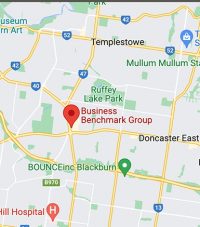The art of follow-up is a pivotal element in the tapestry of sales, weaving together opportunities, trust, and eventual conversions. Often overlooked in the haste to acquire new leads, effective follow-up strategies are instrumental in nurturing prospects, reinforcing their interest, and guiding them towards becoming loyal customers. This blog post delves into the vital role of follow-up within the sales process, offering insights into crafting a strategy that respects your prospects’ time and showcases your commitment to reliability and integrity, fostering more robust customer relationships and boosting sales.
The Significance of Follow-Up in Sales
A well-executed follow-up is a bridge between initial interest and the final decision. It keeps the conversation going, reminding prospects of your offering’s value and your eagerness to address their needs. Moreover, it’s an opportunity to build rapport, answer lingering questions, and overcome objections, making it a crucial step in the journey towards conversion.
Crafting an Effective Follow-Up Strategy
Personalization is Key
Generic follow-ups are easily dismissed. Tailor your communication to reflect the prospect’s specific interests, concerns, and previous interactions with your brand. This personalised approach demonstrates attentiveness and a genuine interest in providing value.
Timing and Frequency
Striking the right balance in timing and frequency is essential. Follow-ups should be frequent enough to keep your offering at the forefront of your mind but not so frequent that they become intrusive. Establish a cadence that aligns with your sales cycle and the prospect’s decision-making timeline.
Diverse Communication Channels
Leverage multiple channels for follow-up, including email, phone calls, social media, and even direct mail. Different prospects have different communication preferences, and utilising various channels increases the likelihood of your message being well-received.
Value-Added Content
Each follow-up should offer something valuable— additional information about your product or service, relevant industry insights, or answers to questions raised in previous interactions. This approach ensures that follow-ups are anticipated and welcomed rather than seen as mere sales pitches.
Monitoring and Adjusting
Keep track of your follow-up efforts and their outcomes. Use this data to refine your strategy, identifying the most effective messages, channels, and timing. This continuous improvement ensures that your follow-up strategy remains effective and responsive to changing dynamics.
The Impact of Effective Follow-Up
Building Trust and Credibility
Consistent, valuable, and respectful follow-up efforts build trust with your prospects. They demonstrate your commitment to addressing their needs and reliability as a potential partner, laying a solid foundation for a long-term relationship.
Enhancing Conversion Rates
Follow-ups significantly enhance the likelihood of conversion by keeping the conversation going and progressively addressing any concerns or objections. They ensure that your offering remains in consideration and that prospects are guided towards making a decision.
Fostering Customer Loyalty
The diligence and care exhibited in your follow-up process impact initial sales and set the tone for the customer relationship moving forward. Customers who feel valued and supported from the outset are more likely to develop loyalty to your brand, leading to repeat business and referrals.
In Conclusion
Mastering the follow-up is an essential skill in the arsenal of any successful sales professional. It’s about more than just reminding prospects of your existence; it’s an opportunity to build meaningful relationships, demonstrate your brand’s value, and guide prospects towards becoming loyal customers. Developing a strategic, respectful, and value-focused follow-up process can significantly enhance your sales outcomes and cultivate a base of satisfied, loyal customers.
Join the Conversation
Ready to take your trades and construction business to the next level? Connect with like-minded professionals in our “Trades and Construction Mastermind” Facebook Group, designed specifically for tradies. It’s a space to share experiences, gain insights, and find support as you navigate the challenges of delegation and leadership in the industry. Don’t miss out on this opportunity to grow and learn together. Click here to join our community now!








